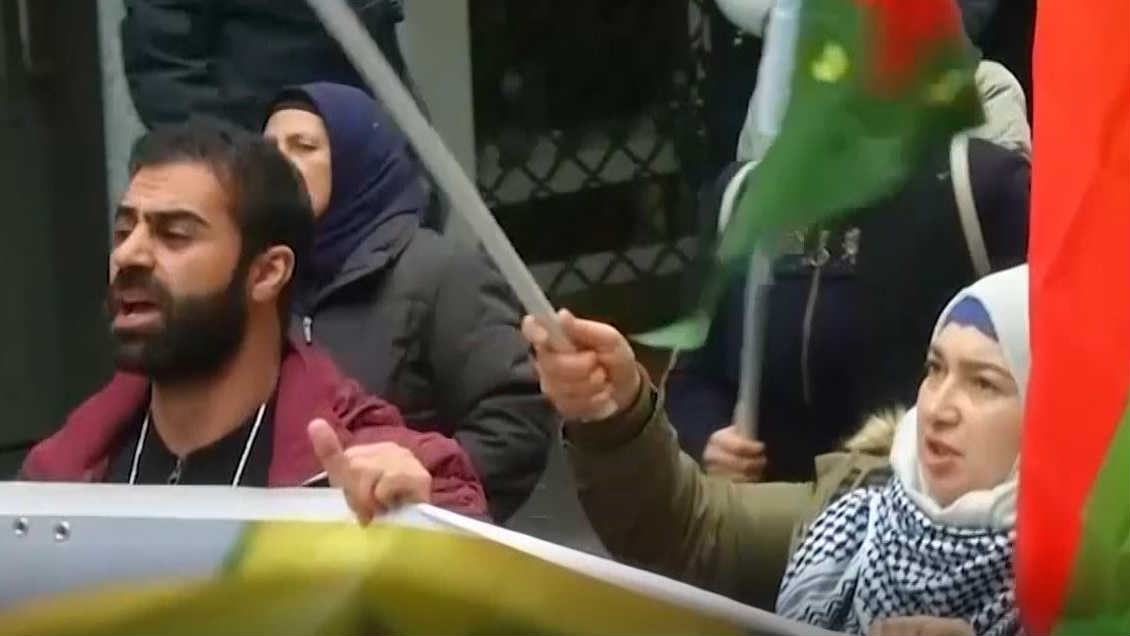02:15

Germany's decision to ban weapons exports to Turkey has received mixed responses from the country's Turkish and Kurdish communities.
Germany announced on 12 October that it will no longer be exporting weapons to Turkey because of its military offensive against Kurdish-controlled Northern Syria after US troops left the region. Before this announcement, Germany had sold an estimated $277 million worth of arms to the country in the first eight months of 2019.
The Kurdish groups in Northern Syria were allies of the US in its fight against so-called Islamic State (IS). Turkey started the offensive because it believes Kurdish groups in that area were responsible for violent attacks inside Turkey. It also plans to move its Syrian refugee population into Northern Syria.

Pro-Kurdish rallies have been taking place across Germany like this one in Cologne (Credit: AFP/ David Young)
Pro-Kurdish rallies have been taking place across Germany like this one in Cologne (Credit: AFP/ David Young)
Response and protests in Germany
There are an estimated three million people of Turkish origin living in Germany, an estimated one million of whom are Kurdish. However, official numbers are hard to confirm as Germany does not record race on its census.
Some members of these communities participated in Kurdish solidarity rallies in Germany after the offensive began. Around 10,000 pro-Kurdish protesters marched in Cologne on Saturday. There were also smaller pro-Kurdish protests in other parts of Germany and other European countries this week.
One pro-Kurdish protest in the German city of Herne resulted in a fight that left five people injured after Turkish onlookers performed the "wolf salute" – a gesture commonly used by members of Germany's far right.
Other violent acts have resulted in Annette Widmann-Mauz, Germany's integration commissioner, to call for "restraint" in an interview with the Funke newspaper group. "We have a responsibility to prevent the conflict in the region from becoming a conflict in our society," she said.
Five German football teams will face disciplinary action after their Turkish players performed the Turkish military salute before matches earlier this month.
Some pro-Kurdish activists have said Germany should be doing more to condemn Turkey's actions in Northern Syria. Kerem Chamberger, a political activist, told CGTN Europe that there are many geopolitical reasons for Germany's hesitancy to take a stand against Turkey beyond the current ban.
"More than 7,000 German companies have investments in Turkey. And that is why Germany doesn't stand on the side of the Kurdish people. And we also have the geo-strategic point that Germany fears that more refugees will be sent from Turkey to Europe," he said
"That is a huge point which is on Erdoğan's [Turkey's President] side.”
France has also banned the selling of weapons to Turkey, and the EU has said that it will limit arms exports. Some aid organisations have estimated that around 300,000 additional people will be displaced because of Turkey's actions in Northern Syria.
Source(s): AFP